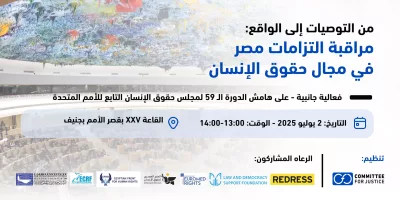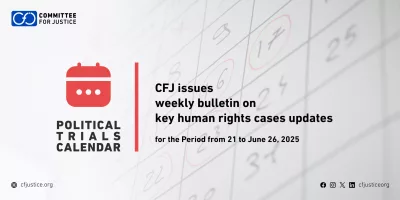Tunisian President Qais Saied in a ministerial meeting on March 8 called on the Central Bank Governor to take necessary measures through the Financial Analysis Committee to monitor the flow of foreign funds to civil society organizations.
Prior to this meeting, Saied had criticized the Financial Analysis Committee of the Central Bank, asserting, in a meeting with the Prime Minister and the Ministers of Justice and Finance on November 24, that the Committee must fulfill its role and to be in charge of monitoring foreign financing. He added, “The Tunisian Central Bank and its leadership must remember that it is a public institution, not independent from the state, and there must be a limit to this laxity.”
Weeks ago, he made a “surprise visit” to the headquarters of the Central Bank, followed by replacing the Director-General of the Financial Analysis Committee and then the Governor of the Central Bank. President Saied also explicitly criticized some senior politicians, civil society activists and some unionists, accusing them of financial corruption and “suspicious” dealings with parties hostile to the country, including “Zionist and colonial lobbies,” as he put it.
These statements and actions come in conjunction with the approaching date of the new presidential elections scheduled for the coming fall, amid speculations that they are intended to pressure civil society organizations not to focus on expected violations. These elections are expected to take place in an authoritarian and despotic atmosphere dominating the political and social life in Tunisia, with authorities concentrating power in the hands of the President.
The Executive Director of the Committee for Justice, Ahmed Mefreh, affirmed that “President Saied’s statements – and the expected actions resulting from them – constitute a clear prelude to deliver a repressive blow to civil society in the country, out of fear of its effective engagement with the upcoming presidential elections, which are soon to be held.”
He emphasized that “it would be a crippling blow to the nascent democratic experience in Tunisia after the Jasmine Revolution.”
CFJ considers that such a step, in addition to attempting to amend the law regulating the establishment, operation, and financing of civil society organizations, or introducing amendments to it, all fall within the framework of a campaign against civil society in Tunisia. Civil society represents the last lung from which democracy breathes, after the executive power’s encroachment and domination over all authorities in the country.
Therefore, CFJ strongly rejects the recent statements by the Tunisian President regarding foreign funding, describing his characterization of organizations receiving foreign funding as “treason” and “conspiracy against state security” as an evident intention from the executive authorities in Tunisia to undermine civil society in the country and diminish its active role in safeguarding and defending democracy. It also considers it a blatant violation of the freedom
of action of civil society organizations and an interference in their financial and administrative affairs, which the Tunisian Law No. 88 of 2011 protects.
CFJ calls upon the Tunisian civil society to unite against the explicit attack by the presidency institution, and declare their rejection of any interventions in their work, whether organizational or financial. It urges the Tunisian state to respect strategic partnerships with international institutions specialized in supporting civil society and promoting a culture of pluralism, tolerance, and support for freedoms, which are safeguarded by international conventions and treaties signed by Tunisia.






